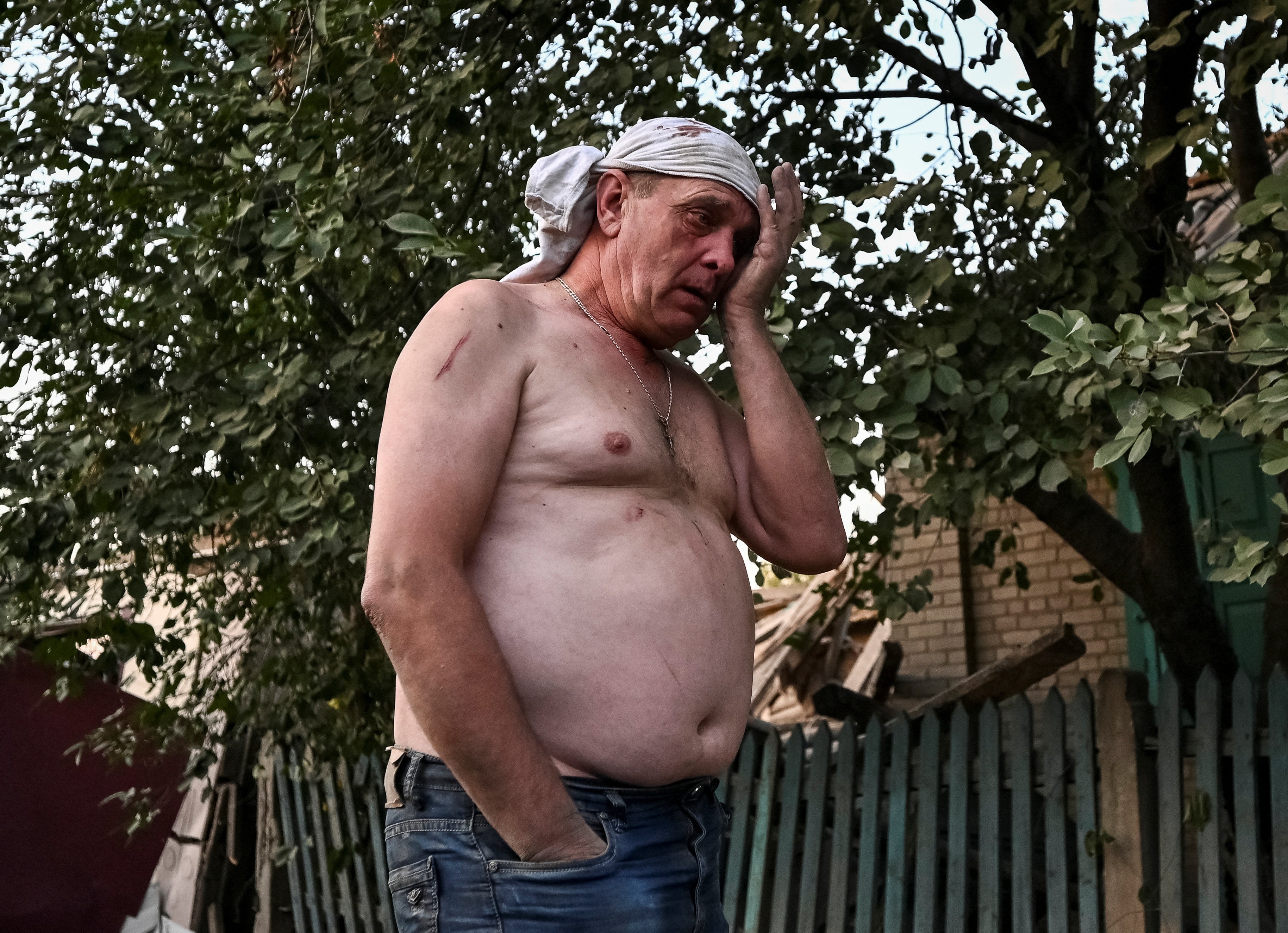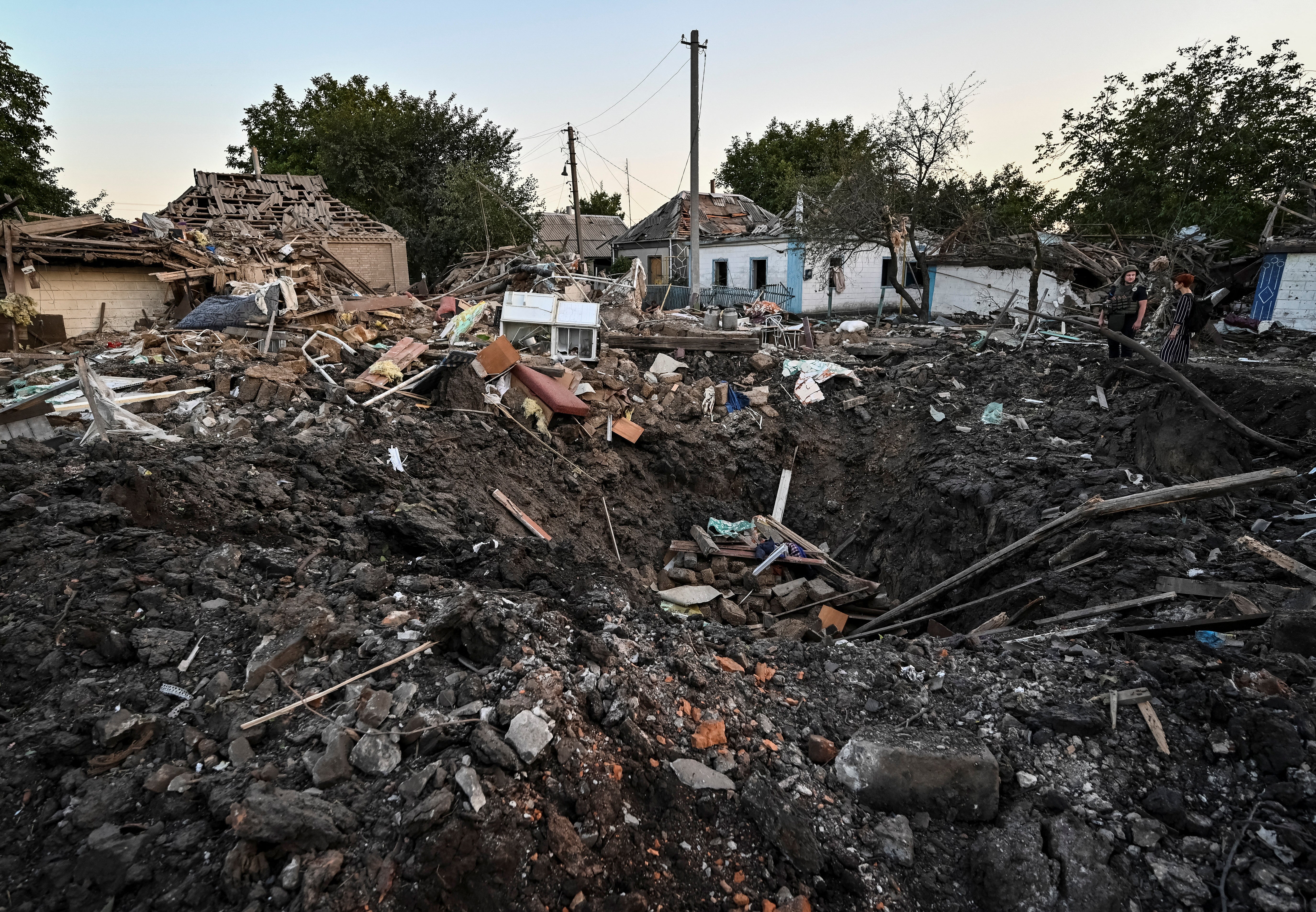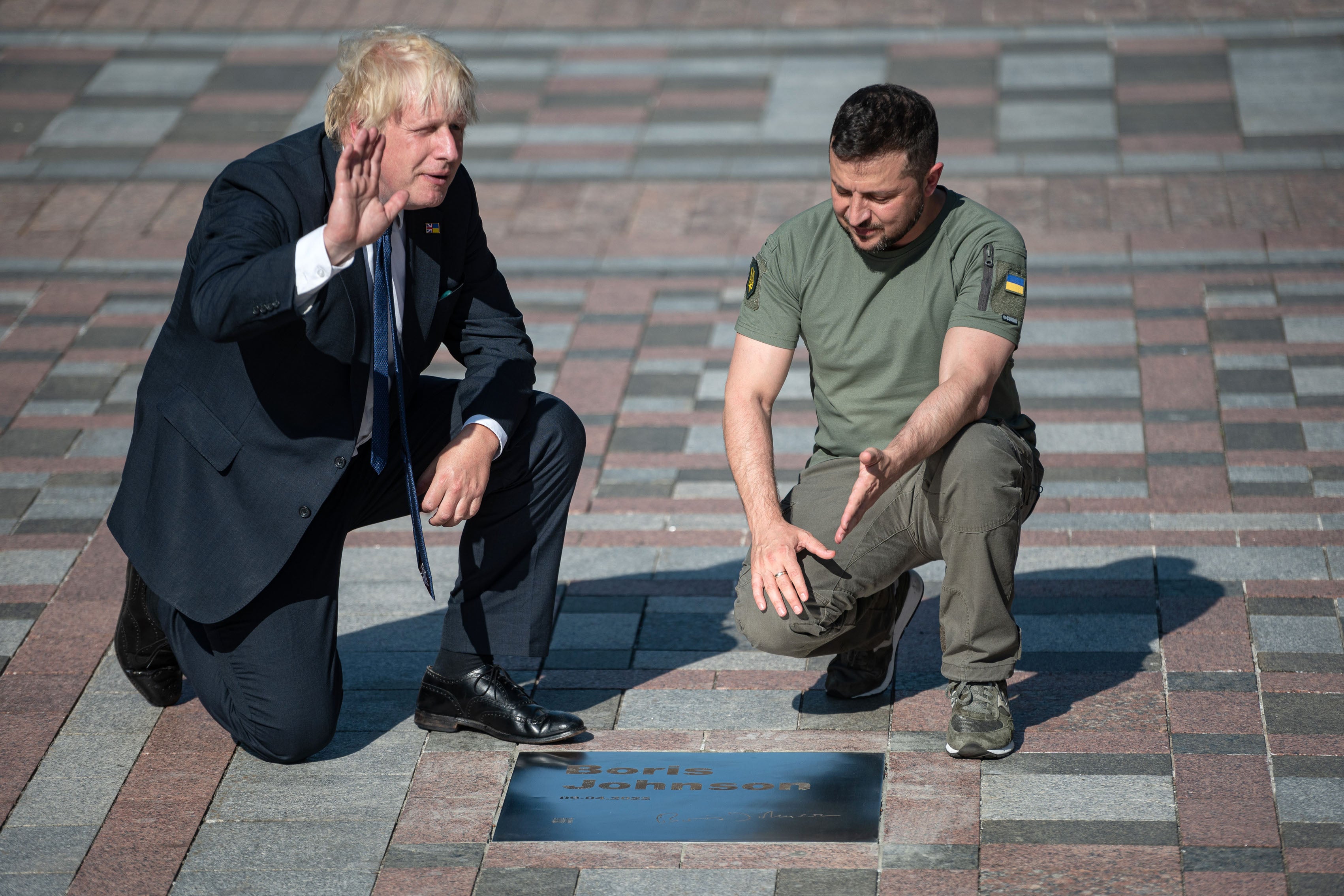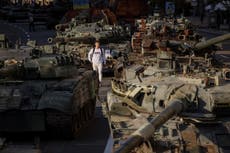Ukraine: At least 22 killed as Russia attacks rail station on Independence Day
Ukrainians had been braced for increased bombardment on national holiday to mark independence from Soviet Union
At least 22 people have been killed in a Russian attack on a railway station in eastern Ukraine, Volodymyr Zelensky has said.
The rocket attack in Chaplyne, a town of about 3,500 people in the Dnipropetrovsk region, came as Ukrainians across the world marked the country’s Independence Day.
Mr Zelensky had warned Russia may attempt “something particularly cruel” to coincide with the celebrations.

The attack was revealed by Mr Zelensky in a video address to the UN Security Council. He later said on Telegram that an 11-year-old child was killed when a rocket struck his house.
Five people were burned alive in a car, he said.
“Chaplyne is our pain today,” he said on Telegram. “As of this moment there are 22 dead ... Search and rescue operations at the railway station continue.”
He added: “We will without any doubt evict the invaders from our land. No trace of this evil will remain in our free Ukraine.”
Valentyn Reznichenko, governor of Dnipropetrovsk, said Russia on Tuesday night fired on three districts in the region: Dnipro, Nikopol and Kryvyi Rih. The number of dead and injured was yet to be ascertained, he said.

Ukraine had been braced for especially heavy attacks surrounding the national holiday that commemorates its declaration of independence from the Soviet Union in 1991.
Large public gatherings were banned in Kyiv and the capital city was put under curfew in anticipation of rocket strikes.
Air raid sirens blared at least seven times in the capital Kyiv during the day, though no attacks in the capital transpired.
Ukrainian forces shot down a Russian drone in the Vinnytsia region while multiple Russian missiles landed in the Khmelnytskyi area, said authorities in the two areas west of Kyiv and hundreds of miles from front lines. No damage or casualties were reported.

Wednesday also marked six months since Russian forces crossed over the border into Ukraine. In an emotional speech to Ukrainians during the day, Mr Zelensky said Ukraine was “reborn” when Russia invaded and that it would eventually drive out Russian forces completely.
“A new nation appeared in the world on 24 February at 4 in the morning. It was not born, but reborn. A nation that did not cry, scream or take fright. One that did not flee. Did not give up. And did not forget,” he said, speaking in front of Kyiv’s main monument to independence in his trademark combat fatigues.
The president was joined in Kyiv by Boris Johnson, who made a surpise visit to the country to mark Independence Day. The British prime minister was honoured with a plaque on Ukraine’s “Walk of the Brave” – the second national leader after Poland’s Andrzej Duda to be recognised on the newly designated stretch of Kyiv pavement.
There were growing fears on Wednesday night that Russia could disconnect Europe’s largest nuclear plant from Ukraine’s grid, a move which experts have warned would risk a catastrophe.
Petro Kotin, the head of Ukraine’s atomic energy company, told The Guardian he had seen a detailed Moscow plan for work to disconnect the Zaporizhzhia site from the Ukainian power network and link it to Russia’s.
Join our commenting forum
Join thought-provoking conversations, follow other Independent readers and see their replies
Comments


Bookmark popover
Removed from bookmarks